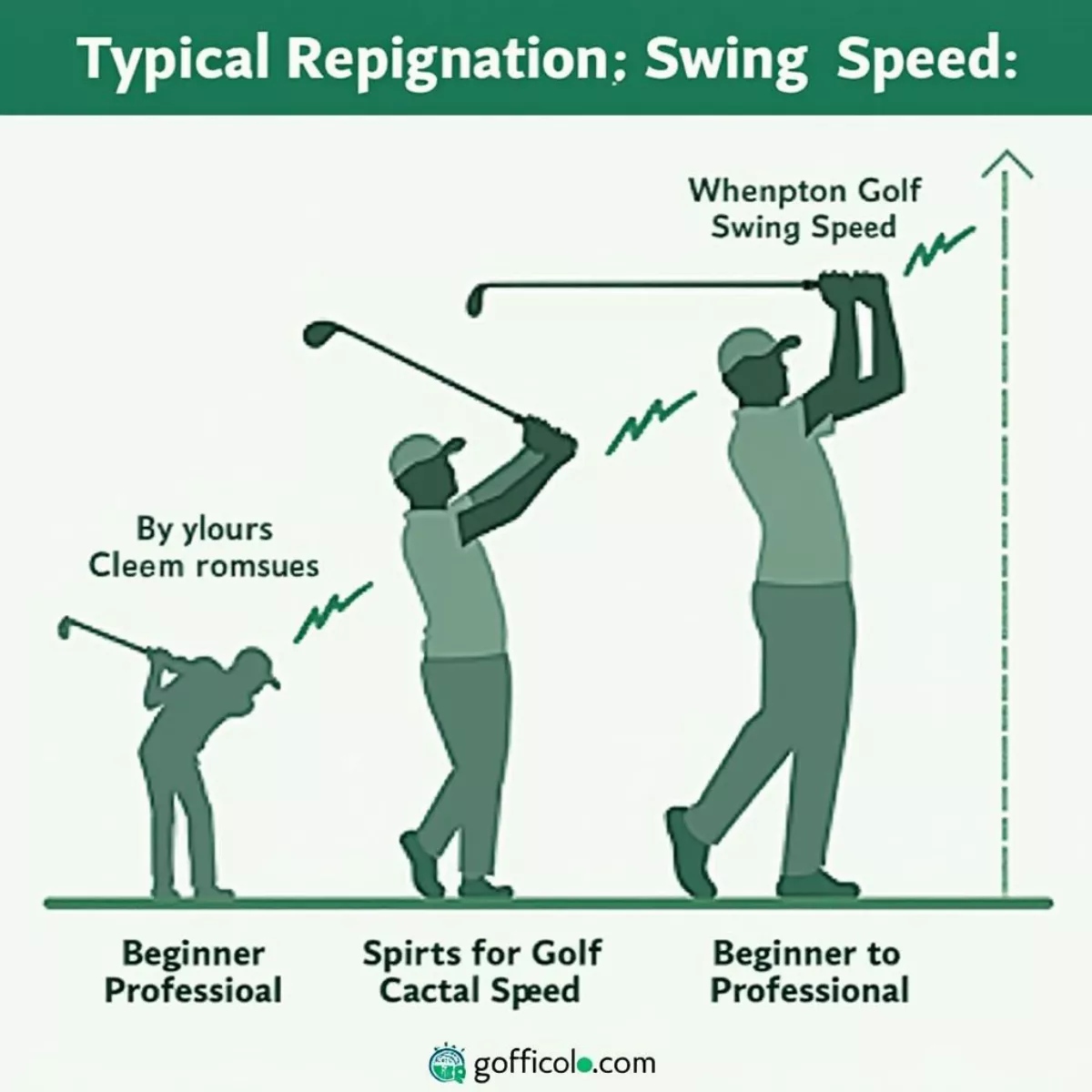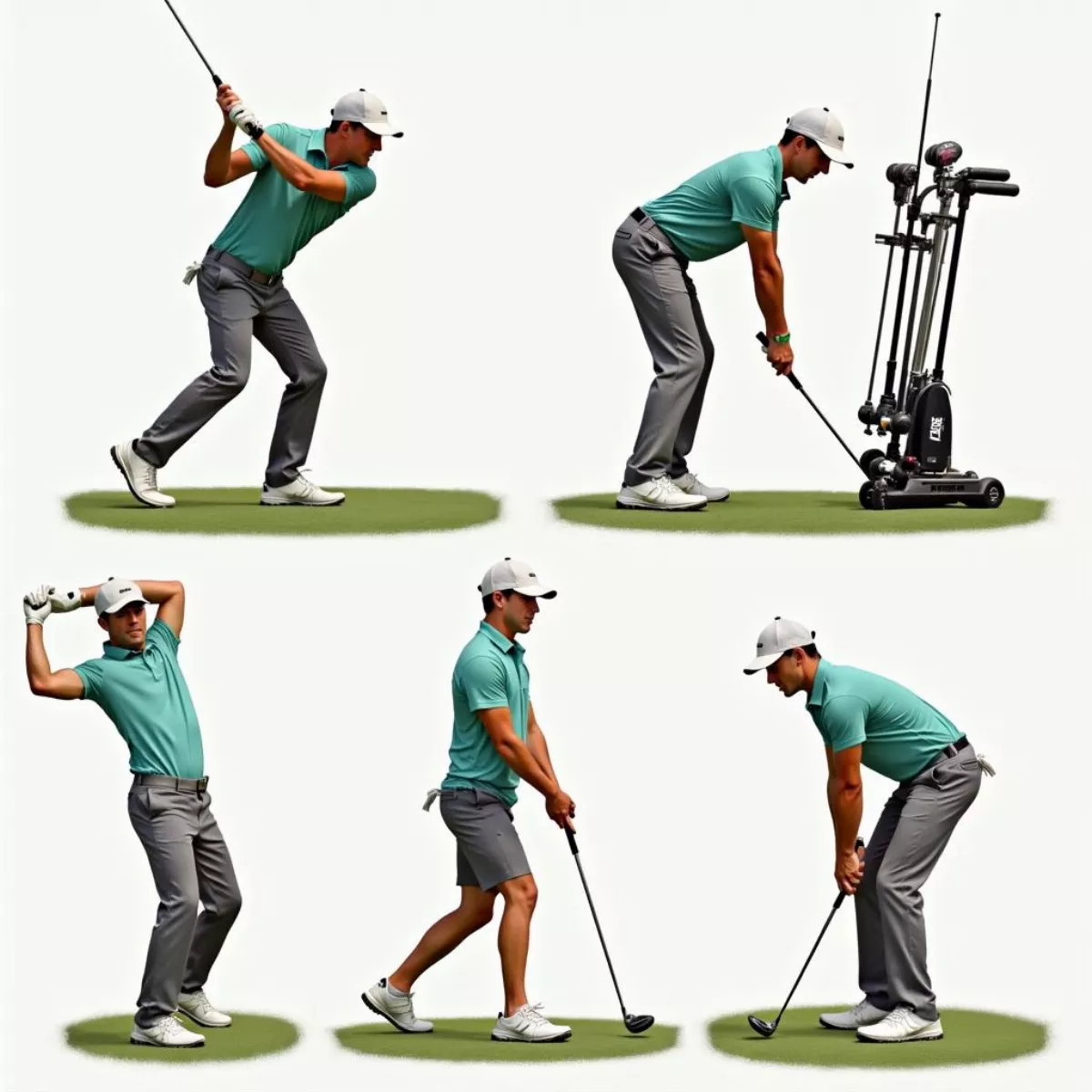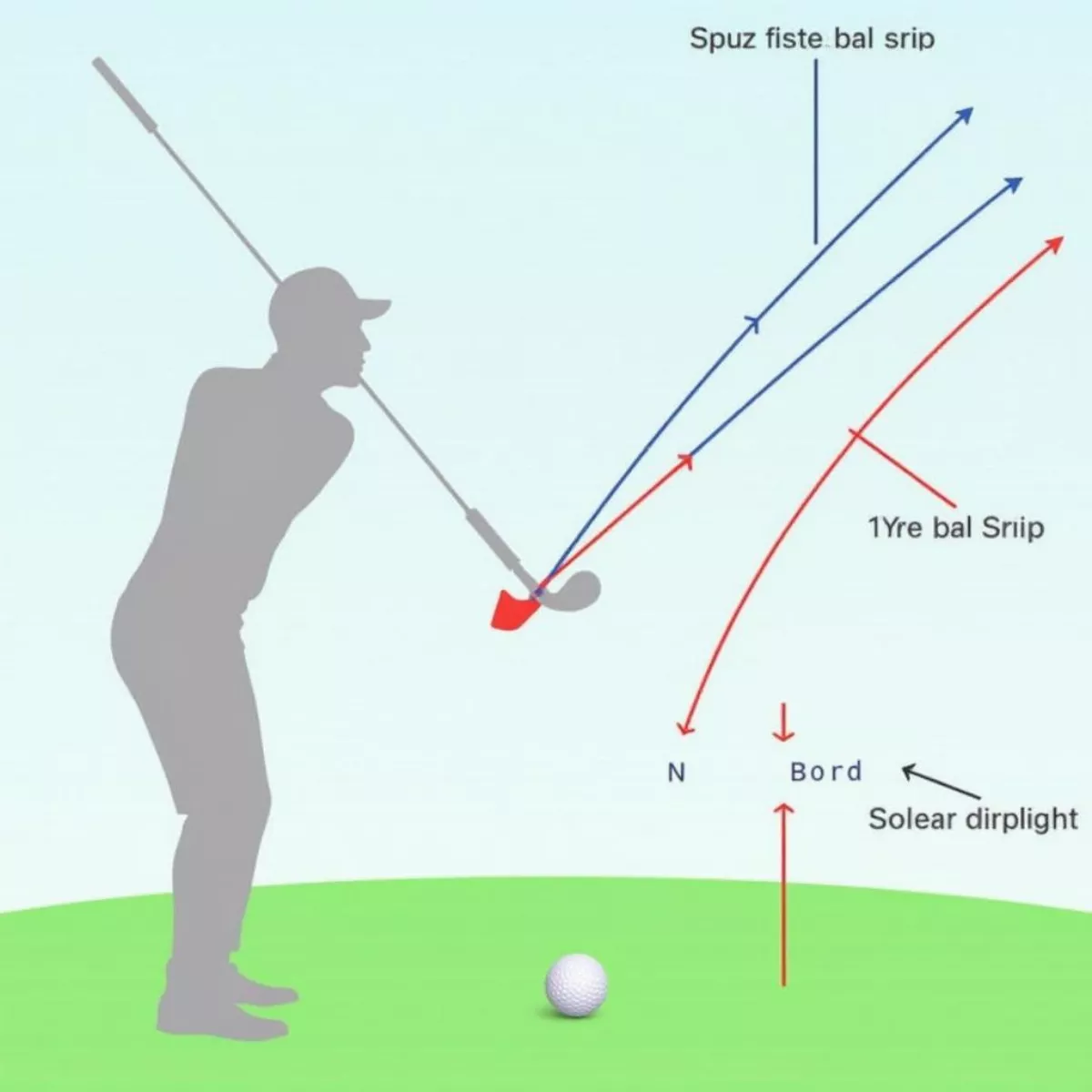Golf is often regarded as a game of precision, patience, and technique. One critical factor affecting your performance on the green is your golf ball swing speed. Whether you are a beginner or a seasoned professional, understanding and improving your swing speed can significantly impact your game. This guide will walk you through everything you need to know about golf ball swing speed, complete with a detailed swing speed chart, tips, and FAQs.
Introduction
Understanding your golf ball swing speed is crucial for optimizing your gameplay. Swing speed is the velocity at which the clubhead moves just before it makes contact with the golf ball. In essence, faster swing speeds can translate into longer drives, provided the technique and alignment are correct. So, how can you determine your swing speed, and how can you improve it? Let’s dive in.
What is Golf Ball Swing Speed?
Swing speed is essentially the speed of the golf club at the moment it strikes the ball. It varies from player to player and can be influenced by various factors such as technique, physical strength, and equipment. For instance, professional golfers have significantly higher swing speeds compared to amateur players.
Importance of Swing Speed
Understanding and optimizing your swing speed can offer multiple benefits:
- More Distance: Faster swing speeds typically result in longer drives.
- Better Accuracy: Proper techniques help in directing the ball precisely.
- Improvement Tracking: By measuring swing speed, you can track your progress over time.
Factors Affecting Swing Speed
Several factors can affect your swing speed:
- Physical Strength: A stronger player can usually generate more speed.
- Technique: Proper grip, stance, and swing technique contribute significantly.
- Equipment: The type of club and ball you use can influence speed.
The Swing Speed Chart
To understand the various levels of swing speed, let’s look at a table:
| Level | Swing Speed (mph) | Typical Distance (yards) |
|---|---|---|
| Beginner | 70-85 | 180-200 |
| Intermediate | 86-100 | 200-240 |
| Advanced | 101-115 | 240-275 |
| Professional | 116+ | 275+ |
 Golf Swing Speed Chart
Golf Swing Speed Chart
How to Measure Your Swing Speed
- Use a Launch Monitor: The most accurate way to measure your swing speed is by using a launch monitor.
- Visit a Golf Pro: Many golf pros have equipment to measure swing speed accurately.
- Swing Speed Radars: These are relatively inexpensive and can be used at home or on the range.
Improving Your Swing Speed
Now that you understand the importance and measurement of swing speed, let’s focus on improvement strategies.
Physical Conditioning
- Strength Training: Focus on building muscle strength, particularly in your core, shoulders, and arms.
- Flexibility Exercises: Incorporate stretching routines to enhance your flexibility.
- Cardio Workouts: Enhance your stamina and overall physical health to maintain better swing mechanics.
 Golfer Stretching and Exercising
Golfer Stretching and Exercising
Technique Enhancement
- Professional Lessons: Consider hiring a golf pro to correct and refine your technique.
- Drills: Regular drills focusing on grip, stance, and swing can help.
- Video Analysis: Use video feedback to identify areas of improvement.
Equipment Selection
- Custom Fitting: Get professionally fitted for clubs to ensure optimal performance.
- Ball Selection: Use a ball that complements your swing speed.
FAQ Section
Here are some frequently asked questions about golf ball swing speed:
-
What is a good swing speed for a beginner?
- A good swing speed for beginners ranges between 70-85 mph.
-
How can I measure my swing speed at home?
- You can measure your swing speed at home using a Swing Speed Radar device.
-
Does swing speed affect ball spin?
- Yes, higher swing speeds can generate more ball spin, impacting distance and control.
 Golf Ball Spin and Trajectory
Golf Ball Spin and Trajectory
-
Can I improve my swing speed at an older age?
- Absolutely! Strength training and flexibility exercises can help enhance your swing speed at any age.
-
How does grip affect swing speed?
- An improper grip can reduce swing speed. A proper grip ensures better control and can increase speed.
-
Do professional golfers have unique training for swing speed?
- Yes, they often have specialized training routines focusing on strength, flexibility, and technique.
-
Why is my swing speed inconsistent?
- Inconsistency can stem from multiple factors such as poor technique, lack of physical conditioning, and improper equipment.
-
What is the average swing speed of LPGA players?
- The average swing speed of LPGA players is typically around 90-100 mph.
-
Is there a connection between swing speed and golf ball compression?
- Yes, golf balls with different compression ratings are designed to perform best at specific swing speeds.
-
How often should I practice to improve swing speed?
- Consistent practice, at least 3-4 times a week, focusing on both technique and physical conditioning, is ideal.
Key Takeaways
- Swing Speed Matters: It influences both distance and accuracy.
- Measurement is Crucial: Use tools like launch monitors or radars.
- Improvement Strategies: Include physical conditioning, technique enhancement, and proper equipment.
- Consistent Practice: Regular drills and workouts can make a significant difference.
Conclusion
Understanding your golf ball swing speed is essential for any golfer wanting to improve their game. By following the tips and strategies mentioned in this guide, you can not only measure but also enhance your swing speed, leading to better performance on the course. Remember, practice and consistency are key, so keep working on those swings!
For more detailed insights into golf techniques and equipment, be sure to check out our other articles on the site. Happy swinging!
 Golfer Swinging on the Course
Golfer Swinging on the Course
Use this comprehensive guide to dive deeper into the mechanics and improvements surrounding your golf swing speed. Track your progress and enjoy the game as you become a more proficient golfer.